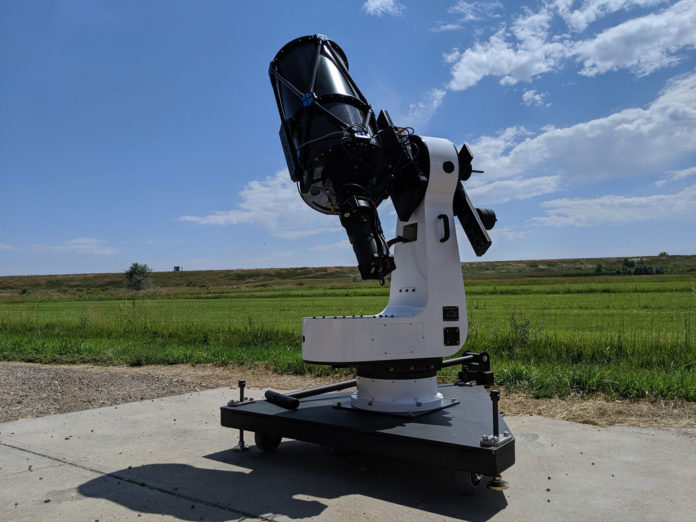Due to the increasing number of satellites and space debris orbiting the Earth, it becomes more important to track their location. A new satellite tracking system has been built to help space agencies and other companies track them even in broad daylight.
Numerica, a Colorado-based space, air, and missile defense company founded in 1996, claims to have built “the first fully-functional, low-cost telescope system that can observe Earth-orbiting satellites in broad daylight at altitudes of more than 22,000 miles (36,000 kilometers).” On 11 August, Numerica has also received a U.S. patent for the technology of detecting such space objects using shortwave infrared (SWIR) sensors during daytime hours.
The developers have already successfully tested and deployed two prototypes of the new daytime-capable telescope systems at test sites in Colorado and Australia. Initial tests have shown that the telescopes are capable of detecting objects from low Earth orbit (LEO) to geosynchronous orbit (GEO) both day and night.
“Our technology is enabled by high-speed shortwave infrared cameras, customized optics, and advanced algorithms,” said Jeff Shaddix, principle investigator for daytime tracking at Numerica. “A daytime sky background creates an extreme shot noise environment. We collect 15 GB/minute from our cameras and apply image processing algorithms that fuse the data to reduce the noise to near theoretical limits. This enables detection of dim satellite signals beyond what is typically achievable for standard optical systems.“
Numerica also notes that unlike similar systems currently in development, its technology eliminates the need for expensive cryogenic cooling equipment.
Successful tests prompted the developers to send the telescope prototypes to other locations across the world to create a broader Numerica Telescope Network (NTN) for daytime satellite and space debris tracking. The network is comprised of more than 130 optical sensors spanning 18 sites worldwide, which offers the most complete commercially-available on-demand deep-space catalog.
Earlier, Numerica received $750,000 for this breakthrough technology. The company has now raised an additional $2.25 million to mass-produce the devices and market them worldwide. It will showcase this new daytime satellite tracking telescope system at the virtual Advanced Maui Optical and Space Surveillance Technologies (AMOS) conference, which will be held online this September.
